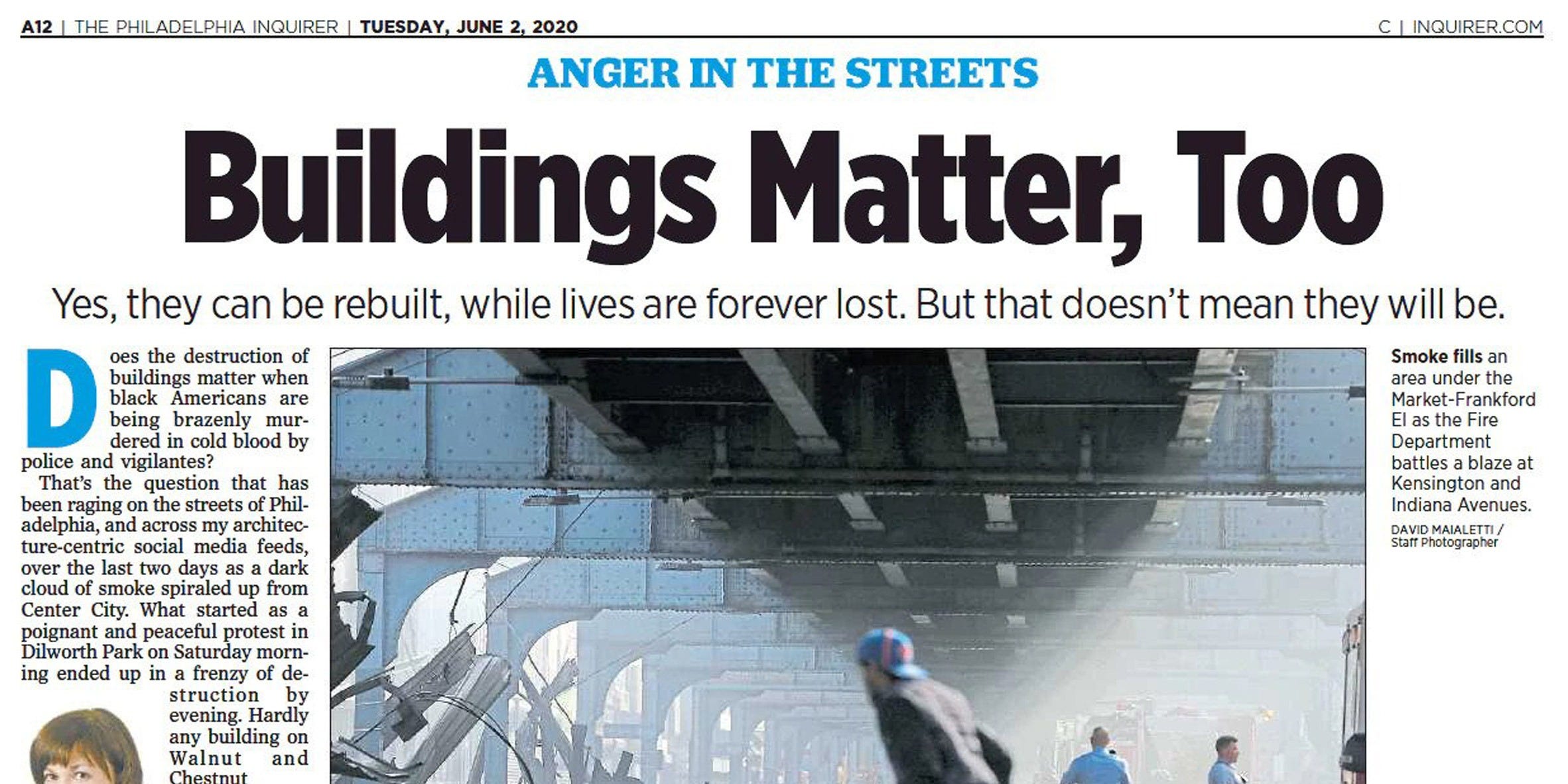- Stan Wischnowski, the Executive Editor and Senior Vice President of The Philadelphia Inquirer resigned Saturday after the newspaper faced a backlash among its own staff for a headline that read “Buildings Matter, Too.”
- The newspaper’s leadership had already apologized after the newspaper’s own staff as well as the public disparaged the headline for seemingly equating the loss of property to the loss of black lives at the hands of police.
- The media has faced ethical questions over how – and what – to publish amid the ongoing civil unrest sparked by the Memorial Day police killing of 46-year-old George Floyd.
- Visit Business Insider’s homepage for more stories.
Stan Wischnowski, the top editor of the Philadelphia Inquirer, resigned Saturday after the newspaper faced a backlash from the public and its own staff about a headline that seemed to equate damage to buildings with the death of black Americans at the hands of police.
Wischnowski had worked at the newspaper for two decades, according to The Inquirer. A successor has not yet been named, leaders of the newspaper said.
“We will use this moment to evaluate the organizational structure and processes of the newsroom, assess what we need, and look both internally and externally for a seasoned leader who embodies our values, embraces our shared strategy, and understands the diversity of the communities we serve,” Lisa Hughes, the newspaper’s publisher, said in a statement.
On June 2 the Philadelphia newspaper published a headline that read “Buildings Matter, Too” alongside a column by an architecture critic who argued buildings damaged amid ongoing protests over the killing of George Floyd may never be rebuilt and “will ultimately end up hurting the very people the protests are meant to uplift.”
The following day, the executive leaders of the newspaper signed a letter to the public and to the newspaper's staff that explained the newspaper's headline writing process and ultimately apologized for suggesting "equivalence between the loss of buildings and the lives of black Americans."
Despite the apology - the newspaper's a group of 44 of the newspaper's non-white staff demanded further action of their leaders in an open letter.
Today, I’m joining my colleagues of color at the @PhillyInquirer and calling in sick and tired.
Things need to change. We call on The Inquirer to do better. To be better.
Here is the open letter we sent our newsroom leadership yesterday:https://t.co/zWavZdCXgV pic.twitter.com/Epp9fZKDnJ
— Brandon T. Harden (@brandontrevion) June 4, 2020
"We're tired of shouldering the burden of dragging this 200-year-old institution kicking and screaming into a more equitable age," the open letter read. "We're tired of being told of the progress the company has made and being served platitudes about 'diversity and inclusion' when we raise our concerns. We're tired of seeing our words and photos twisted to fit a narrative that does not reflect our reality. We're tired of being told to show both sides of issues there are no two sides to."
Protests in Philadelphia and cities across the US have erupted over the past two weeks over the death of Floyd, 46, who was killed after a police officer was caught on video holding him in a neck restraint for over eight minutes, even after Floyd said he couldn't breathe and even after he lost consciousness. That officer and three others involved have been charged with his death.
The protests have also caused a turbulent time for media outlets covering the protests. The Pittsburgh Post-Gazette, also in Pennsylvania, faced criticism over its decision to bar Alexis Johnson, a black reporter, from covering the demonstrations after she tweeted a joke that compared damage left following protests to that left following a country music concert.
When the newspaper's other staff began a social media campaign to support her, two stories authored by reporters who had tweeted in favor of Johnson disappeared from the newspaper's website. Then, on June 6, the company reportedly barred another black journalist from covering the protests.
It's happening beyond Pennsylvania. The New York Times also faced an intense backlash last week when its opinion editors published an op-ed titled "Send in the troops" authored by US Sen. Tom Cotton. The op-ed article called for the US Army to be deployed across cities to stop what the Arkansas Republican depicted out-of-control violence.
After backlash from the public and members of the Times' staff, who argued the op-ed article put black staff and Americans at risk of violence, The New York Times apologized for publishing the piece and pledged to make changes to its opinion section.
Read more:
Aerial footage shows colossal crowds gathered in Philadelphia to protest against police brutality
